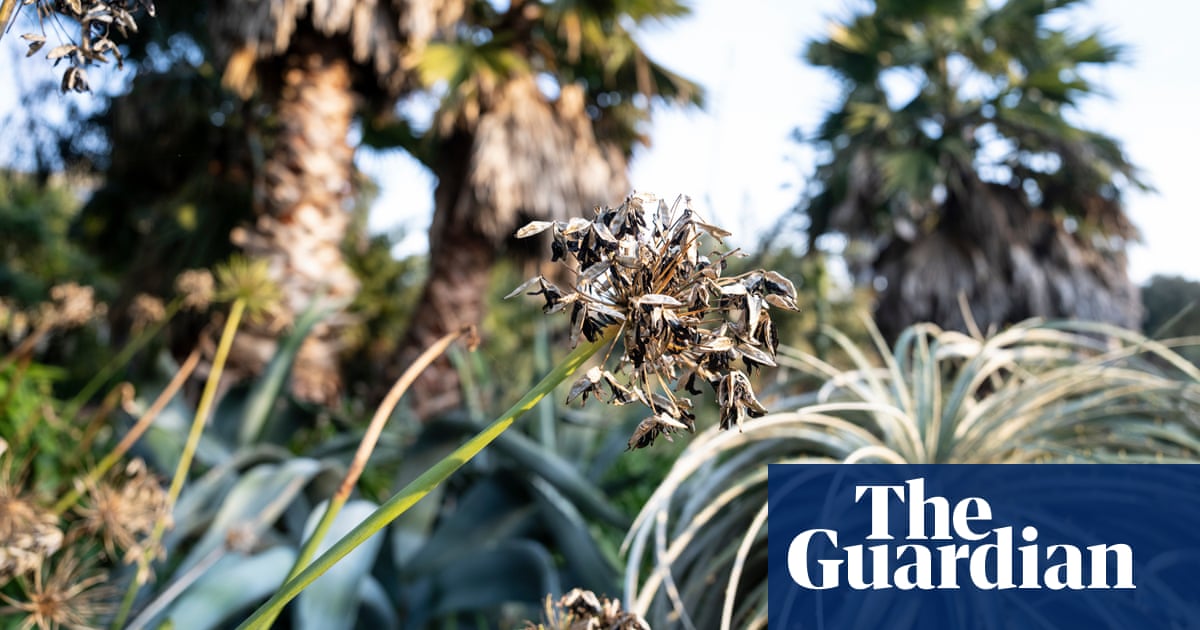
Villagers gather round kitchen tables, squabbling about the fate of huge trees, some of which have stood for centuries in front of their homes. What does one tree matter if its removal means the roads will be improved, argues a man, while an old woman mutters ominously about payback in the next life.
Outside, majestic oaks and limes quiver as bulldozers carve trenches round their roots and industrial pipes are driven beneath their gnarled and mossy trunks. The aim is not to destroy them but to move them to a new home: a lush arboreal Shangri-La that is being conjured up by one of Georgia’s richest and most powerful men.
These little back-yard dramas, played out in the Georgian countryside over a period of two years, are the subject of Taming the Garden. It is the second feature film from the TV journalist turned documentary director Salomé Jashi, who was inspired to make it after seeing news footage of a tree floating sedately along the Black Sea coast on a boat.
“The sensations that this image triggered in me were something I could have never have imagined before,” she says. “My first thought was that it was a totally dazzling image, it was real-life poetry. But then it was as if I was seeing something that I should never have seen, that should have never happened. It was like some sort of error; a digital glitch in reality that wasn’t supposed to exist.” She has recreated this sensation in a 90-minute documentary that has been hoovering up awards since its premiere at the Sundance festival in January, and which opens in the UK this month.
On the surface, Taming the Garden is a faithful record of the tough negotiations and brutal mechanics of tree removal. One family are delighted to sell their tree. They are in debt and have been trying to kill it for years because it blocks the sun from their mandarin orchard. Others are left in grief, with gardens cratered like bombsites. All are unaware that the chosen specimen may not be the only tree to suffer; so will any lesser trees unfortunate enough to impede its transportation, sometimes by two lorries abreast, along roads that have to be specially widened for each journey.
From this limb-cracking progress emerges a profoundly moving meditation on power, the vulnerability of nature and the primordial impulse of men to bend the environment to their will. It’s as if Oscar Wilde’s selfish giant is raging away in the background, though we never see him. The selfish giant of this story is the billionaire Bidzina Ivanishvili, who emerged from obscurity to found a new party and become Georgia’s prime minister in 2012 (he voluntarily left office a year later). More than 200 trees were ripped from the Georgian countryside to make his pleasure garden.
Getting villagers – and workmen – to appear on camera was the biggest challenge for Jashi, who had to abandon several storylines after people had second thoughts about taking part in the film. Planning ahead was impossible, as filming was entirely dependent on information from workers who often didn’t know how long it would take to complete a job or where they were going next. “Three months, six months, who knows?” they shrug, huddled round a campfire at the end of a long day.
Georgia has strong laws on tree protection, Jashi points out, which made the project seem all the more controversial, while also landing local people with the problem of disposing of discarded branches, since they lacked the paperwork to sell them to sawmills. On one occasion, a beloved lime, with the names of generations of farmers carved into its trunk, was accidentally destroyed as it was moved. “That was a huge tragedy,” says the director. “We were sitting in this woman’s kitchen as she told me the story. She was crying, and I was crying as well, because the tree was really like a human being for her.”
For all that the trees become the main protagonists of this slowly unfolding drama, there is also a strange heroism in the machinery that is pitted against them: bulldozers doggedly dig round them with crabbed claws, and juggernauts carry them, unblinking, through the night. As a child growing up in the Georgian capital, Tbilisi, Jashi loved watching excavators at work. “They very much reminded me of human gestures somehow. And when we were filming I found it really attractive how this brutal, heavy-duty machinery also made some very tender movements.”
Jashi came to film-making late, after being argued out of it as a girl by her engineer father and English teacher mother. “It was the 1990s during the post-Soviet crisis. We had no food, no electricity and no money, obviously. And they said: ‘No, you won’t make a living in film-making, plus you are a woman. You should study journalism. This is the profession of the future.’ So I kind of complied with that.” But news formats frustrated her and she started making short films, eventually winning a British Council scholarship to study for an MA at Royal Holloway, University of London, under the documentary-maker Gideon Koppel. “The kind of film I make now is very much because of him,” she says. “I didn’t even know they existed before.”
Taming the Garden is far from a balanced two-minute news report; it stands at the junction of documentary and myth, not even mentioning that Ivanishvili’s garden is now open to the public. Although many trees were involved in the filming, their stories are represented by one symbolic journey. Villagers gather with their bicycles to see the tree on its way. A man lights his first cigarette in 30 years. An elderly woman weeps and convulsively crosses herself, while her younger relatives excitedly record the removal on their phones.
As the tree is sailed along the coast – in a repeat of the image that inspired the film – two bulldozers await it on a stone mole, their excavator arms lowered like bowed heads at a funeral. And in a rich man’s manicured garden, round the half-buried roots of ancient trees held upright by guy ropes, the sprinklers come on.












